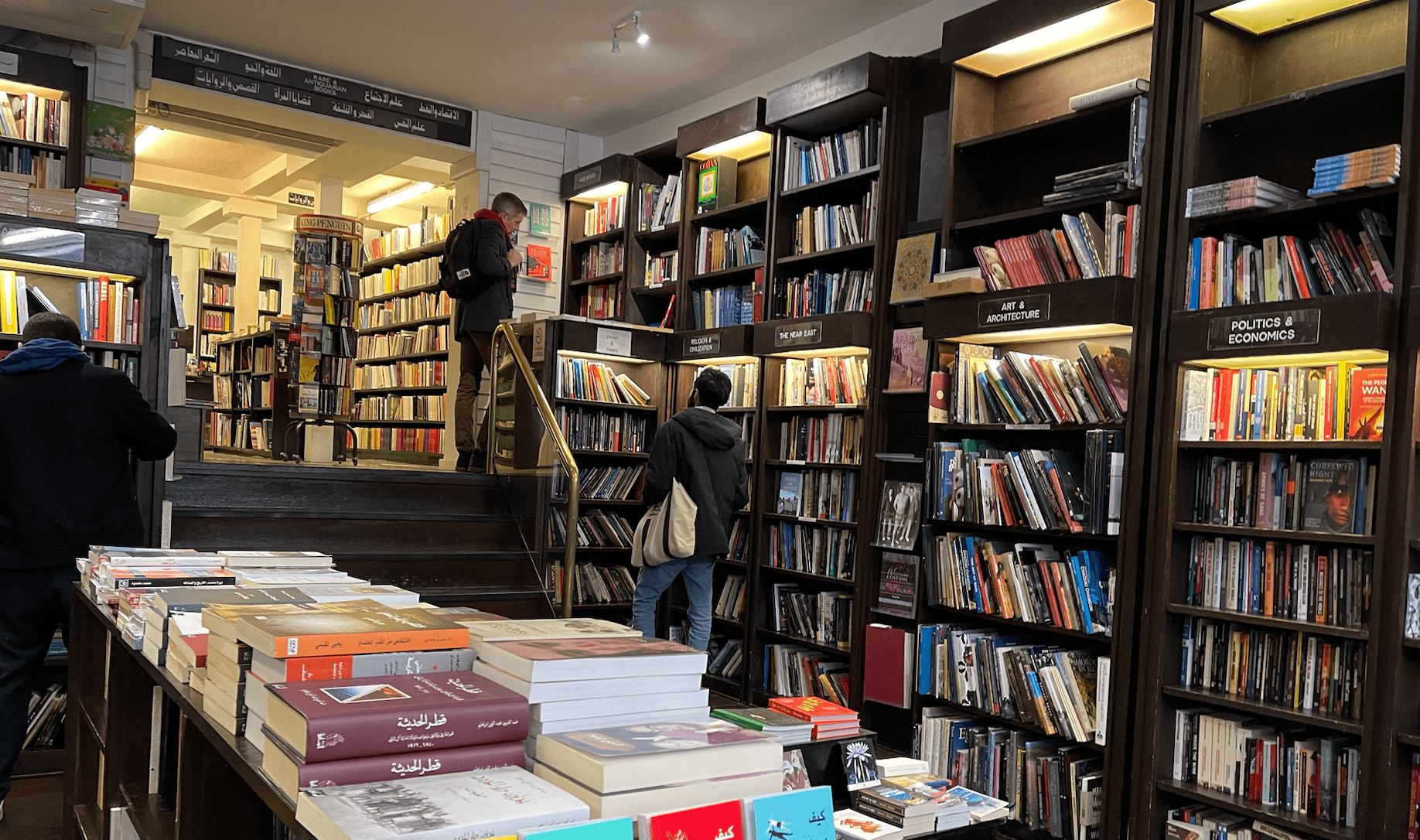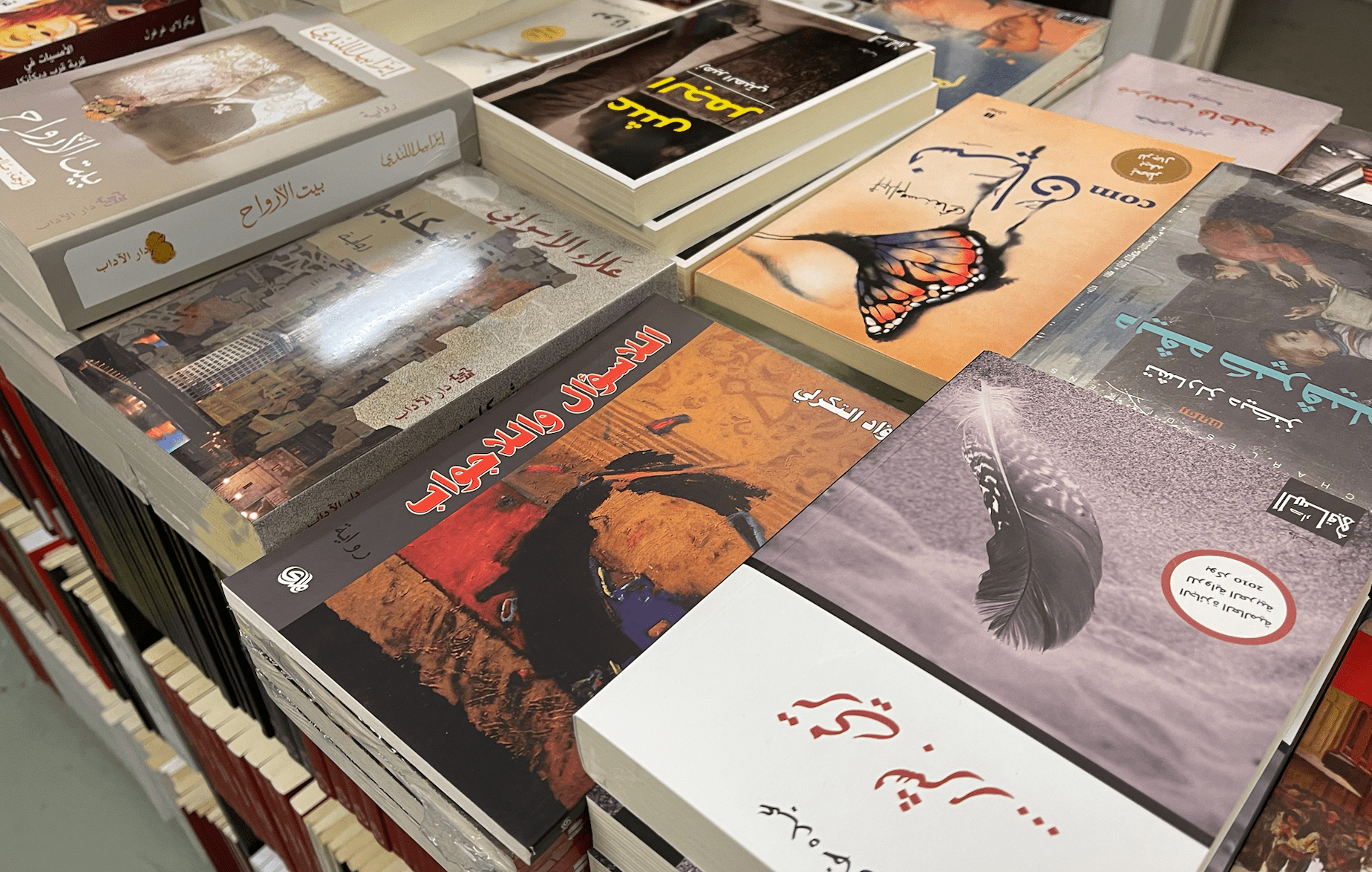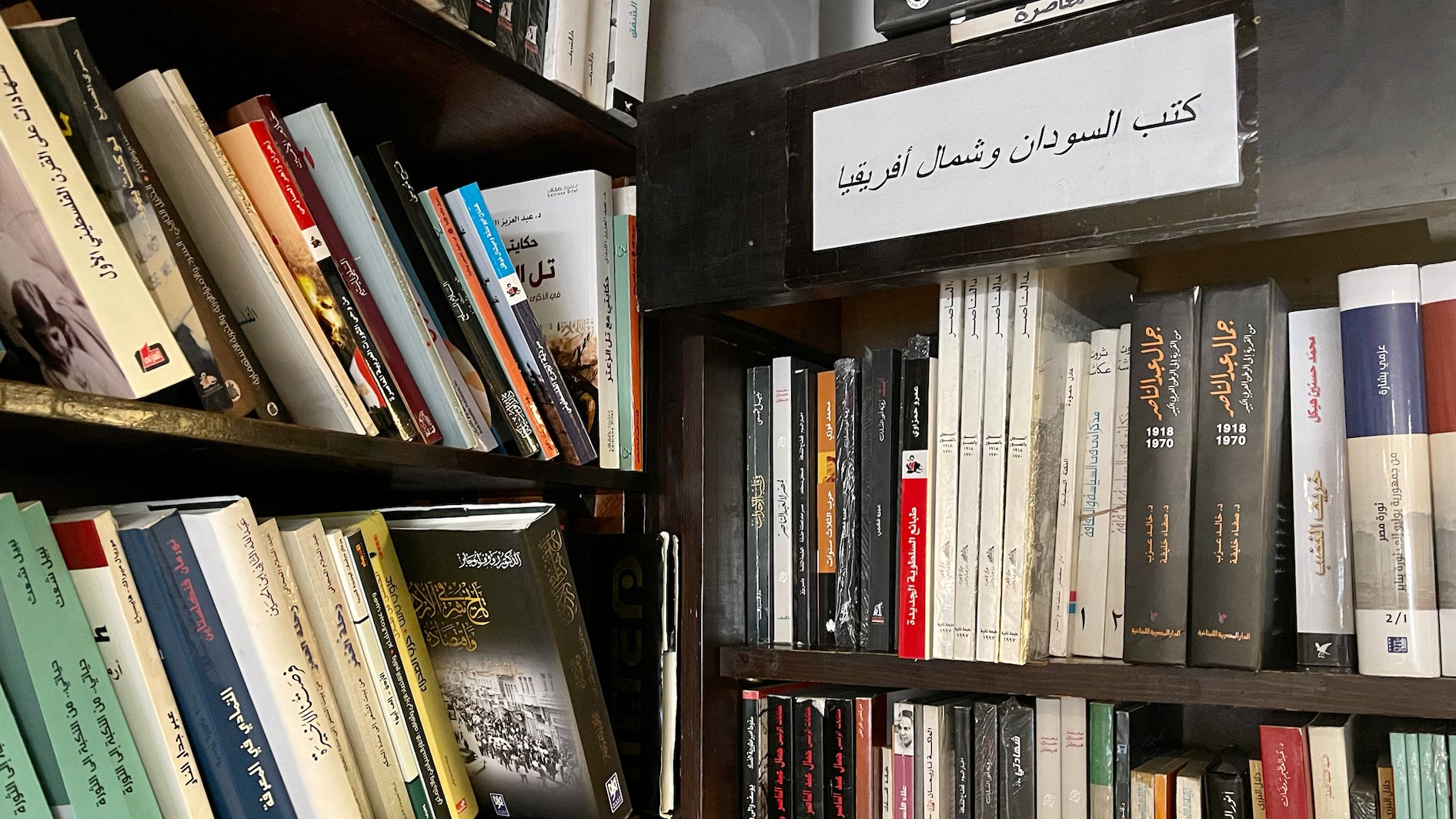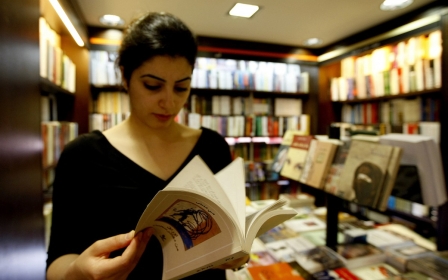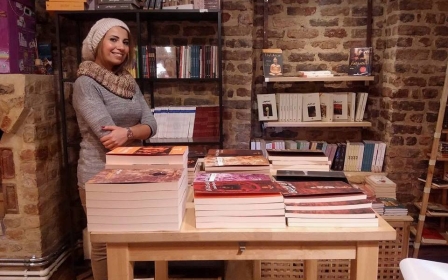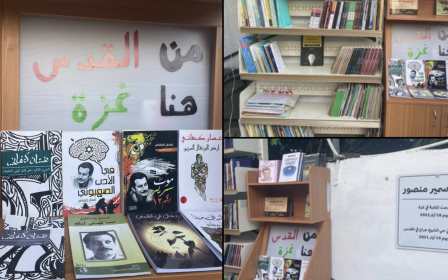Al Saqi Books: Dismay as London's famed Arabic bookshop closes its doors
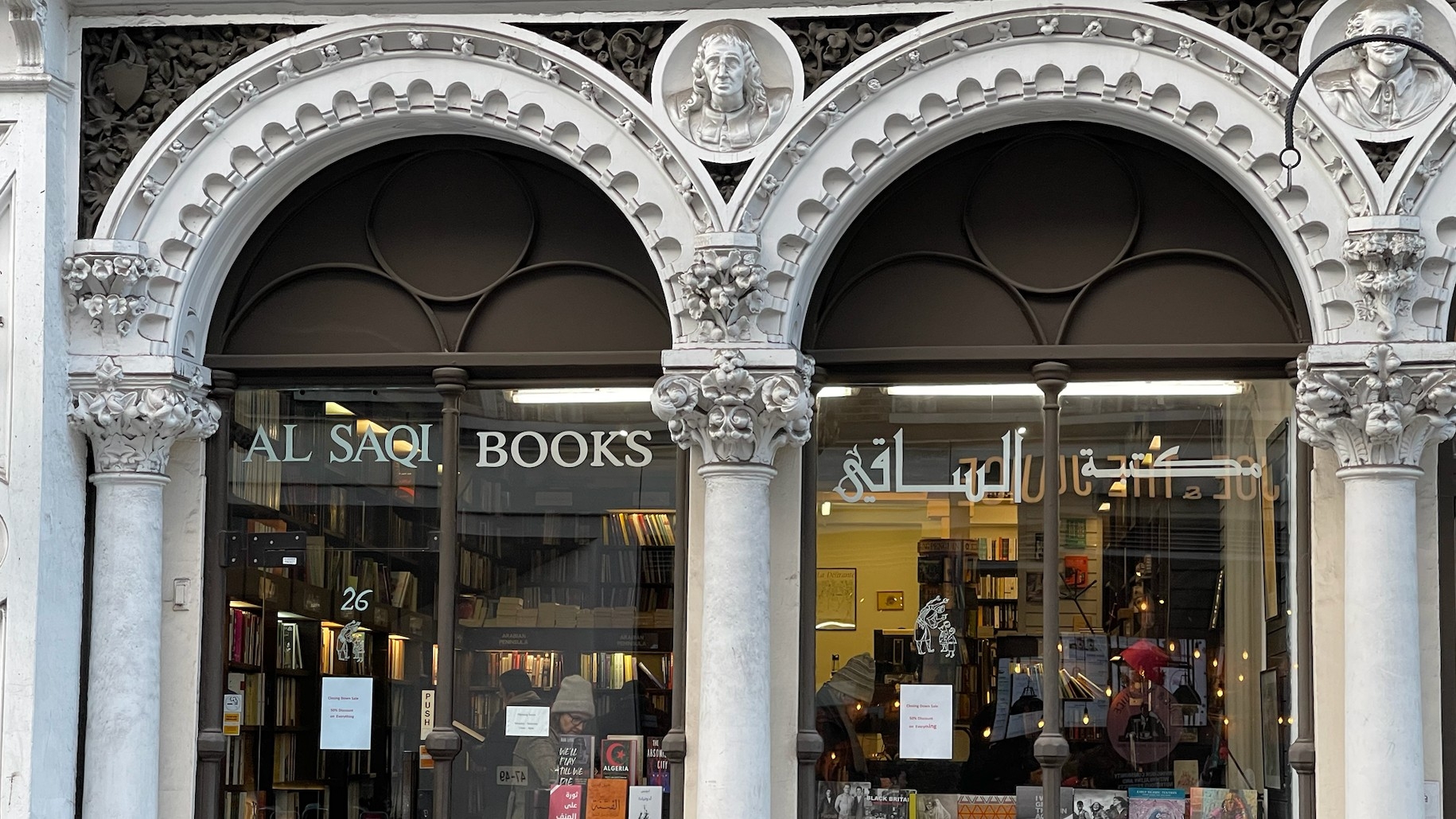
The iconic voice of Egyptian singer Umm Kulthum could be heard gently playing in the background as customers rummaged through the Arabic-language books on sale at the Al Saqi bookstore.
The store, in west London's Bayswater neighbourhood, witnessed a deluge of customers on Tuesday after news broke that it would be closing its doors later this month, due to economic challenges brought about by the financial crisis in Lebanon and the UK's Covid-19 lockdowns.
Posters with "50 percent off" covered the walls and windows of the store, as customers queued up to ask the specialist retailer if it really was closing, and where else they would be able to get their favourite books.
"This place is close to my heart. I was crying last night when I found out that it was closing," Rashid, a student, told Middle East Eye.
'This place is close to my heart. I was crying last night when I found out that it was closing'
- Rashid, student
"I came to the UK in 2018. I was full of passion for change, especially political change, and this place was somewhat of a haven for me.
New MEE newsletter: Jerusalem Dispatch
Sign up to get the latest insights and analysis on Israel-Palestine, alongside Turkey Unpacked and other MEE newsletters
"There are so many books you can find here that you can’t find back home,” Rashid added, holding a first edition of a book about a conference held in the UAE in 1985, a book he says he would not be able to find elsewhere.
Many others MEE spoke to said the store was a place where people would come for more than just books.
"It was a place for debate and discussion," Rashid said.
Freedom of thought
In a statement posted on its social media accounts, Al Saqi said it was a "leading light not only for Middle Eastern expatriates, but for visitors from across the region keen to obtain works banned in their own countries.
"Al Saqi Books stood for freedom of thought and expression, cultural diversity and empathy with all peoples. Saqi books continues on, with the bookshop always in our hearts," it read.
The bookstore opened its doors in 1978, and catered to a large demographic, selling content in both Arabic and English.
It was founded by Andre and Salwa Gaspard and the late Mai Ghoussoub, three friends who had fled war-torn Lebanon and settled in London in the 70s.
In a statement, Salwa Gaspard took aim at high book prices in Lebanon, and UK government policy following the outbreak of the coronavirus pandemic.
"The various lockdowns and the ensuing breakdown of supply chains negatively impacted many independent businesses, such as ours. But as a specialist Arab-world bookseller sourcing our stock from the Middle East and North Africa, we also had to contend with sharp increases in Arabic-language book prices, shipping charges and exchange rates."
Over the years, Al Saqi had survived numerous hardships, from the 2006 war in Lebanon affecting supplies, the emergence of e-books and a steady decline in visitors as buying habits changed.
Still, in January last year hundreds of people raised over £13,000 ($15,800) in 48 hours after the bookshop flooded. In photos shared online, the basement was littered with water-damaged books.
One of the major setbacks the store experienced was the reaction after the publication of Salman Rushdie's novel The Satanic Verses in 1988. The shop’s windows were smashed by people who opposed the book.
For many of its loyal customers, particularly Arabs, Al Saqi filled a crucial gap in the market.
Hundreds of people took to social media to express dismay over its closure, with many calling it a "tragedy".
One Twitter user wrote: "I am inconsolable", while another suggested that supporters should crowdfund to save it.
Among those who expressed their displeasure was Anwar Gargash, the diplomatic adviser to the United Arab Emirates' president.
"I'm saddened by the news of the closure of the Saqi bookstore in London after four and a half decades, an important Arab cultural edifice in London that provided a lot of books. Visits to the bookstore have always been a part of my personal journey," he wrote on Twitter.
The bookstore was also a hub for students wanting to learn more about the region, with a number of writers and journalists paying tribute on Twitter.
"This is really heartbreaking. What is London without this enchanting bookstore? Praying for a miracle," said writer Asma Abdulmalik.
The shop will shut its doors on 31 December, but its west London-based publishing houses, Saqi Books and Dar al Saqi, will remain open.
Middle East Eye delivers independent and unrivalled coverage and analysis of the Middle East, North Africa and beyond. To learn more about republishing this content and the associated fees, please fill out this form. More about MEE can be found here.


